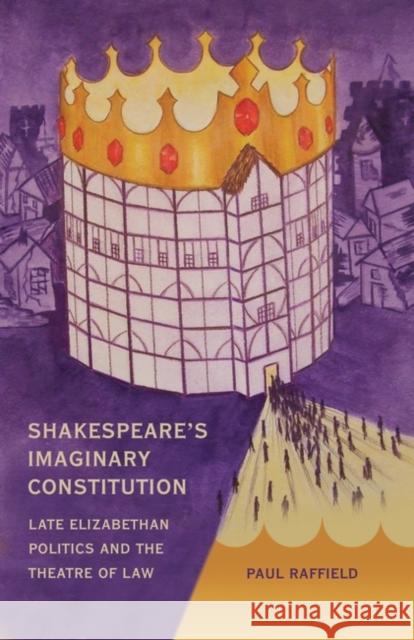Shakespeare's Imaginary Constitution: Late Elizabethan Politics and the Theatre of Law » książka
Shakespeare's Imaginary Constitution: Late Elizabethan Politics and the Theatre of Law
ISBN-13: 9781841139210 / Angielski / Twarda / 2010 / 256 str.
Through an examination of six plays by Shakespeare, author Paul Raffield - co-editor of the journal Law and Humanities - presents an innovative analysis of political developments in the last decade of Elizabethan rule and their representation in poetic drama of the period. In the 1590s, the playhouses of London provided a distinctive forum for discourse and dissemination of nascent political ideas. Shakespeare exploited the unique capacity of theatre to humanize contemporary debate concerning the powers of the crown and the extent to which these were limited by law. In the plays considered here, the autonomous subject of law is represented as a sentient political being, whose natural rights and liberties found an analogue in the narratives of common law as recorded in juristic texts and law reports of the early modern era. Each chapter reflects a particular aspect of constitutional development in the late-Elizabethan state. These include: abuse of the royal prerogative by the crown and its agents * the emergence of a politicized middle class citizenry, empowered by the ascendancy of contract law * the limitations imposed by the courts on the lawful extent of divinely ordained kingship * the natural and rational authority of unwritten lex terrae * the poetic imagination of the judiciary and its role in shaping the constitution * the fusion of temporal and spiritual jurisdiction in the person of the monarch. The book advances original insights into the complex and agonistic relationship between theatre, politics, and law. The plays examined offer persuasive images both of the crown's absolutist tendencies and of alternative polities, predicated upon classical and humanist principles of justice, equity, and community. This scholarly study of the legal and constitutional aspects of Shakespeare's plays will be useful for students taking interdisciplinary courses in 'Law and Literature, ' as well as undergraduate English Literature/Shakespeare Studies courses. Summary of Contents: -Terras Astraea reliquit-: Titus Andronicus and the Flight of Justice * The Comedy of Errors and the Meaning of Contract * Reflections on the Art of Kingship: Richard II and the Subject of Law * The Poetic Imagination, Antique Fables, and the Dream of Law * The Ancient Constitution, Common Law, and the Idyll of Albion: Law and Lawyers in Henry IV, Parts 1 and 2 * The Congregation of the Mighty: The Juridical State and the Measure of Justic











